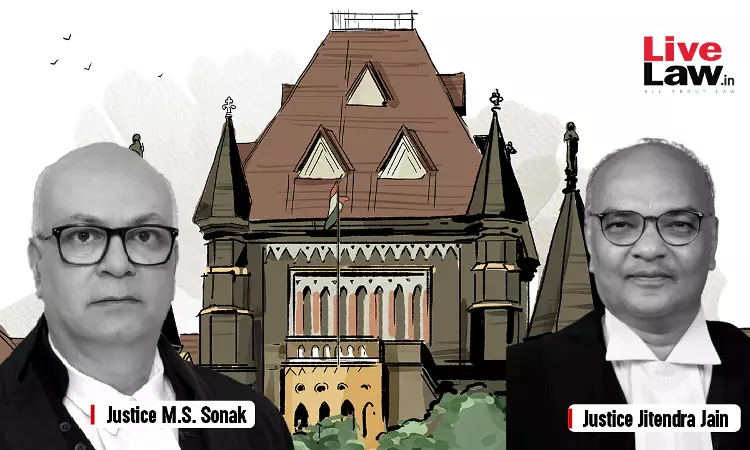- Home
- /
- High Courts
- /
- Bombay High Court
- /
- Does Payment For Transponder...
Does Payment For Transponder Services Constitute 'Royalty' U/S 9(1)(vi) Of Income Tax Act? Bombay High Court Asks CIT To Decide
Mehak Dhiman
19 Jun 2025 1:15 PM IST
The Bombay High Court has asked the Commissioner of Income Tax to decide whether payment for transponder services constitutes 'royalty' under Section 9(1)(Vi) of Income Tax Act. The Division Bench of Justices M.S. Sonak and Jitendra Jain observed that “the authorities have held the payment to constitute 'royalty' under the domestic law as well as under the Treaty, but by holding...
The Bombay High Court has asked the Commissioner of Income Tax to decide whether payment for transponder services constitutes 'royalty' under Section 9(1)(Vi) of Income Tax Act.
The Division Bench of Justices M.S. Sonak and Jitendra Jain observed that “the authorities have held the payment to constitute 'royalty' under the domestic law as well as under the Treaty, but by holding the said payment is towards 'royalty' under the Treaty, the revenue has relied upon the definition of 'process' under the domestic law. Therefore, to say that the revenue has only held against the Assessee on the ground of domestic law and not the Treaty is not correct.”
In this case, the Assessee/Appellant filed an application under Section 195 of the Income-tax Act 1961 for AY 2013-14 seeking NIL deduction of tax at source on payments to be made to Intelsat Corporation of USA Corporation.
The claim was made on the ground that the payment made under the agreement with Intelsat for transponder services does not constitute 'royalty' under Article 12 of the India–USA tax Treaty (the Treaty).
In the said application, the Appellant also, without prejudice, submitted that the payment cannot be regarded as 'royalty', even under the Act as amended by the Finance Act, 2012.
The assessee also submitted that Intelsat does not have a PE in India, and the payment made is in the nature of business profits, which would not be taxable in India, and therefore, there is no liability to withhold tax under Section 195 of the Act.
An order under Section 195(2) of the Act came to be passed disposing of the aforesaid application. The ADIT rejected the application on the ground that the payment made to Intelsat constitutes 'royalty' under the Act by relying upon the Explanation inserted by the Finance Act, 2012.
The assessee filed an appeal under Section 248 of the Act, challenging the aforesaid order on the grounds that the payment did not constitute 'royalty' under the Act as well as under the Treaty.
The Commissioner of Income Tax (Appeal) disposed of the aforesaid appeal by upholding the order passed under Section 195(2) of the Act. The Commissioner (Appeal) followed the order of the Tribunal in the assessee's own case for AY 2009-10. The assessee filed an appeal before the Income Tax Appellate Tribunal which was dismissed.
The assessee submitted that the definition of 'royalty' under the Treaty should be applied to the transaction under consideration and if so applied, the payments made does not constitute royalty. It was submitted that the amendment in the Act was made in 2012 and India has subsequent to 2012 entered into various Double Taxation Avoidance Agreement (DTAA) with various countries and wherever such type of transactions was to be roped in the definition of 'royalty' same formed part of the definition of 'royalty'.
The department submitted that Article 3(2) would be applicable since the definition of 'royalty' under the treaty does not explain the term 'process' or 'secret process' and to understand the said meaning recourse is taken to Explanation 6 to Section 9(1)(vi) of the Act.
The bench stated that “the appeal is under Section 260A of the Act on substantial questions of law. It was incumbent upon the three authorities, i.e. the original authority and the appellate authorities, to have examined and analysed the nature of services as agreed upon by the parties in the agreement. It was also incumbent upon these authorities to thereafter give a finding of fact on this issue and then apply the definition of 'royalty' under the Act or under Article 12(3) of the Treaty. How these services are covered by the Act or the Article 12(3) is not discussed. There is an absence of foundational facts in the orders of all the three authorities on this issue. The orders are non-speaking orders.”
The original authority and the appellate authorities have not examined this transponder service agreement to conclude that the payments constitute 'royalty' either under the domestic law or under the Treaty, observed the bench.
The bench directed the CIT(A) to examine the agreements and give a factual finding on the nature of services rendered under the agreements and how the phrase 'secret process' is to be interpreted to ascertain whether the payments constitute 'royalty' under Treaty.
In view of the above, the bench remanded the appeals back to CIT(A).
Case Title: Viacom 18 Media Pvt. Ltd. v. Deputy Commissioner of Income Tax
Case Number: INCOME TAX APPEAL NO.1378 OF 2018
Counsel for Appellant/ Assessee: Madhur Agrawal, Atul Jasani, Ketan Dave and Pratik Shah
Counsel for Respondent/ Department: Subir Kumar a/w Niyanta Trivedi, Akshata Chhabra and Darshil Desai



